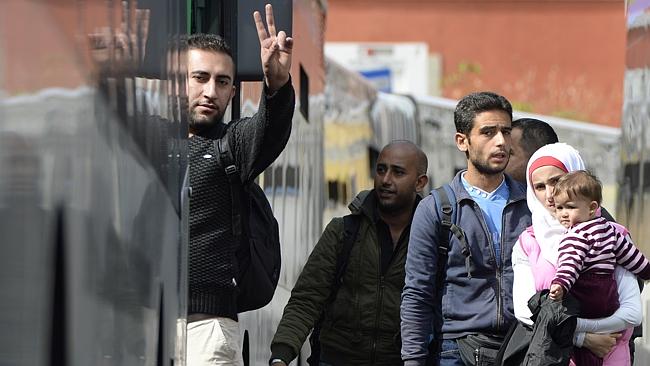Refugees face long struggle to get off welfare into work, government report suggests
THE 12,000 Syrian refugees to be resettled in Australia will face an uphill battle to get off welfare and find work, government research suggests.

THE 12,000 Syrian refugees to be resettled in Australia will face an uphill battle to get off welfare and find work, with new government research released today highlighting the struggles of previous humanitarian intakes.
The Building a New Life in Australia report by the Department of Social Services surveyed 2399 refugees comprising more than 1500 families from Iran, Iraq and Afghanistan who had been granted permanent visas in 2013 under Labor.
Almost half of refugees surveyed had never had a paid job before their arrival, 15 per cent had never been to school, and 38 per cent said they could not understand spoken English.
Just 6.8 per cent reported paid work as their primary income when surveyed three to six months after arrival, with 88 per cent relying on government payments — 71.8 per cent on Newstart or Youth Allowance, 1.8 per cent on the age pension and 1.4 per cent on the Disability Support Pension.
The government claims the one-off placement of 12,000 refugees will cost $700 million. Social Services Minister Scott Morrison told The Daily Telegraph the figures highlighted the “serious challenges” of resettling refugees.
“What we want is a good settlement outcome where people become part of Australia’s culture, learn the language, go to school and get a job so they can support themselves,” Mr Morrison said.
“We can’t underestimate the scale of that challenge … and the less control over the selection process, the less control you have over outcome. When you get this wrong the consequences are generational.”
It follows a new report released by the Australian Bureau of Statistics covering 2009-10, which analysed the personal income of migrants on skilled, family and humanitarian visas. It found that even after 10 or more years of residence, refugees’ median income was just over half of that of skilled migrants, peaking at $27,651.
Peter McDonald, professor of demography at the Australian National University’s Crawford School of Public Policy, has previously argued the Syrian refugees would likely speak better English and be more highly skilled than regular humanitarian migrants.




